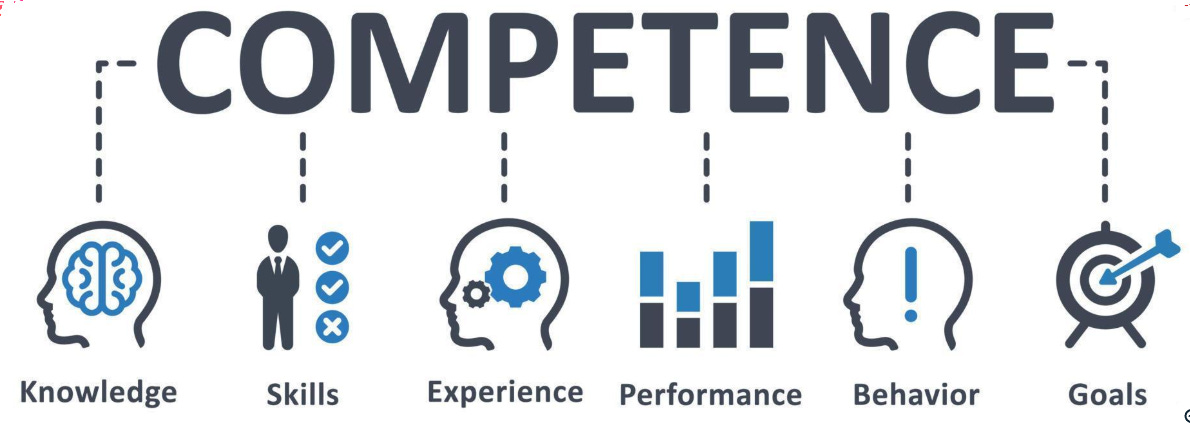Becoming competent
Everybody’s got a different circle of competence. The important thing is not how big the circle is. The important thing is staying inside the circle. - Warren Buffett
The term 'competency' is used in many different situations. Workers are considered competent if they are qualified to successfully complete their assignments. American law considers defendants competent if they can understand the proceedings in which they are participating and can rationally deal with their counsel. Organizations rely upon developing and protecting their core competencies, which enables them to focus on the factors which are fundamental to realizing their business's objectives.
Yet few are willing to accept a charge of incompetence. Consider BP, the third-largest energy company in the world. Hydrocarbon exploration is a high-risk business; should a less than perfect record be considered incompetent? Throughout its history, BP's leadership consistently represented that financially, it was not only competent but was one of the premier companies in the world. Many of BP's workers criticized the company's repeated emphasis on cost-cutting. But such cost pressures are present in competitive businesses. Yet after the Deepwater Horizon Oil Spill, the company's environmental and human rights records were widely regarded as abysmal. As the results of investigations into the accident unfold, multiple factors contributed to the disaster.
The accident could have been avoided with the most basic of procedures - if the battery in one of the wellhead's dead man switches had been replaced in a timely fashion (a routine maintenance operation) the catastrophe could have been avoided. In the court of public opinion, BP (and its employees) may never recover, all for the lack of a simple battery replacement, which a competent organization should expect their competent workers to perform routinely.
Each of these perspectives of competency - corporate, legal, and personal - may appear to draw from similar concepts for different situations. Yet upon closer examination, the specific meaning for competency is highly dependent upon the context in which it is used, the criteria of the competency evaluation, the qualifications of the evaluator, and the implications of the determination.
The real reason the word 'competency' is used so much in today's businesses is that we all want to be competent when it counts. A bias known as the Dunning-Kruger effect by itself can explain why the results of most self-assessment competency evaluations are so often determined to be unreliable. Further, since the criteria for conducting competency evaluations may not be well defined in advance, the evaluation itself can be subject to evaluator biases, political considerations, and other factors. These, in turn, may cause determinations to be quite different than real performance, and produce outcomes quite different from expectations.
Strategic decisions are considered competent when they shape the nature of an organization through decisions which have long-lasting effects. As a result, these decisions are critically important to get right. In this context, the keys to achieving competency include:
self-awareness, to confirm the ability to perform
confidence, to enable a willingness for action
judgement, especially around boundaries that make a difference
trustworthiness, to provide
mastery, reliability built from repetition
The classic work on shaping human performance is Human Competence: Engineering Worthy Performance. It seeks to 'engineer' competency through deliberate action. The choice of the word "engineering' is a deliberate one, which Gilbert describes as follows:
Scientists approach their fields of study with humility, seeing themselves as small spots of intelligence "surrounded by a vast sea of ignorance", to quote Issac Newton... The scientist approaches nature as a little child does, to discover what it is like. The engineer approaches nature with a swagger, determined to change it into something it never has been and never would be, if left to itself. The scientist has a well-developed methodology and follows it wherever it may lead; the engineer knows precisely where to go, and will use any available methodology to get there...
Gilbert's heuristics about competence include the following:
Human competence is proportional to hard work, motivation, and knowledge
Human competence is not a behavioral issue
Incompetency does not necessarily mean inefficiency
The less competent people are, the easier it is to improve their performance.
Individuals seeking to improve their competency should begin by making sure they have a well-formed and consistent understanding of the meaning of the term. This understanding will be enriched in the articles in this series.


